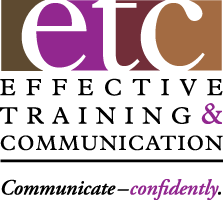(Continuing our popular series, ‘Do Your Presentations Suck?, take a closer look at your ending.)
Your Ending might suck if you don’t End Strong – if you just stop talking. Introductions are critically important because you’re ‘Telling ‘em what you’re gonna tell ‘em.’ Now, we focus on the equally important summary or conclusion, where you’re ‘Telling ‘em what you told ‘em’. While the audience may be influenced most by what they hear first, they remember most what they hear last. So, a powerful ending can ‘close the sale’.
Your Ending might really suck if you don’t quickly restate your Main Point in terms of audience-centric value, remind them of the Sub-Points you shared to ‘prove’ your main point and let them know what’s next. As with your Introduction, that’s a lot of important work to do in a very short time, so every word must count here, too.
What follows are 10 Best Practices for Ending Strong to make sure it doesn’t suck;
1. With a basic Informative Presentation, summarize the information you shared and tell the audience what to do with it. Let them know about their Action Plan if you included that piece in your message. Also remind them of the value of the information – the ‘WII-FM’ message.
2. With a Persuasive Presentation, end with a succinct Conclusion of how you ‘’proved’ your Main Point. Also indicate what they should do next – approve your proposal, hire your firm, all pledge to the United Way campaign or leave motivated to meet their new sales goals.
3. In both cases, your Ending should be less than 10% of your total presentation length. So, a 30-minute presentation should have a strong ending of less than 3.0 minutes.
4. Don’t introduce new facts or information in your Summary or Conclusion. Those belong in the content of your presentation.
5. If you decided to hold questions until the end of your presentation, invite them at the end of your content, not at the end of your Summary.
6. Restate your Main Point at the beginning of your ending, indicating something like … ‘We’ve been discussing the importance of (Main Point) … . ‘We’ve been discussing … ‘ sounds better than ‘’I’ve been telling you about … ‘, even if you’ve done all the talking.
7. Also review your Sub Points. If you phrased them as questions in your Intro and Body, restate them now as declarative sentences or phrases. They aren’t questions any more because you effectively answered them with your content.
8 if you have a handout for them now, remind them when they’ll get it and what to do with it.
9. Consider reconnecting with your opening ‘hook’. Restate, paraphrase or continue with the idea from your opening quote, statistic, rhetorical question or thought-provoking statement.
10. Pause after your last words … thank them for their enthusiastic participation if you want … enjoy their thunderous applause … and sit down with smile on your face, confident that you won the day.
As you’ve seen, a Strong Ending that doesn’t suck has a lot of important work to do in a very short time, whether you’re summarizing an informative presentation or concluding a persuasive one. So, send them out of the room singing the praises of the message … and the messenger.
